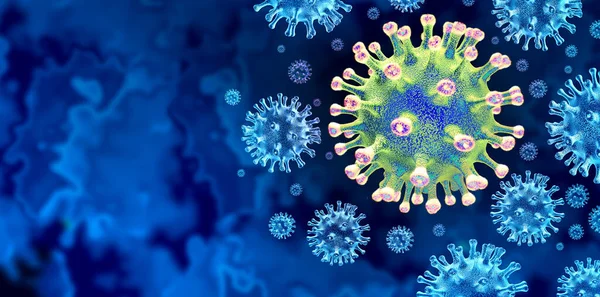COVID-19’s Ripple Effects on Neglected Tropical Diseases – New study The COVID-19 pandemic has had a profound impact on the global fight against neglected tropical diseases (NTDs), a group of debilitating and often fatal infections that disproportionately affect the world’s poorest and most vulnerable populations. While significant strides have been made in recent years to control and eliminate NTDs, the pandemic has threatened to unravel this progress, exacerbating existing challenges and posing new obstacles to achieving the ambitious global targets set forth for NTD eradication.
In a groundbreaking new article published in the esteemed journal Zoonoses, researchers delve into the multifaceted effects of the pandemic on neglected tropical diseases (NTDs), a group of debilitating infections that disproportionately affect marginalized communities.
The article highlights the far-reaching consequences of COVID-19 on NTD prevention and control efforts. Disruptions to essential health services, shortages of healthcare workers, and the diversion of resources have hindered NTD control programs, leading to delays in treatment and an increased risk of resurgence. The pandemic has also exacerbated poverty, a major driver of NTD transmission, further compounding the challenges faced by NTD-affected communities.
Despite these setbacks, the COVID-19 pandemic has also presented unexpected opportunities for NTD control. The crisis has underscored the need for strengthened public health infrastructure and the importance of community-based approaches to healthcare delivery. Additionally, the pandemic has accelerated the adoption of innovative technologies, such as mobile health platforms, which can play a crucial role in improving NTD surveillance and treatment.
“The COVID-19 pandemic has undoubtedly posed significant challenges to NTD control efforts,” remarked the lead author of the study. “However, it has also highlighted the resilience of NTD programs and the potential for innovation in the face of adversity. By carefully considering the lessons learned from this pandemic, we can build a more robust and equitable approach to NTD control that can withstand future crises.“
The article in Zoonoses provides valuable insights into the complex interplay between COVID-19 and NTDs, offering a roadmap for navigating the challenges and opportunities that lie ahead. As the world grapples with the long-term implications of the pandemic, this research underscores the importance of continued vigilance and innovation in the fight against neglected tropical diseases.
The World Health Organization (WHO) estimates that the pandemic could delay the achievement of global NTD control goals by up to five years. To mitigate this impact and ensure that the fight against NTDs remains on track, several critical steps must be taken:
Protect Essential Health Services: Governments and international organizations must prioritize the protection of essential health services, including NTD control programs. This includes providing adequate funding, ensuring a sufficient workforce, and addressing supply chain disruptions for essential medicines and diagnostics.
Adapt NTD Control Programs: NTD control programs need to adapt to the realities of the post-pandemic world. This may involve adopting new technologies, expanding community-based interventions, and tailoring strategies to specific local contexts.
Strengthen Surveillance and Data Collection: Robust surveillance systems and comprehensive data collection are crucial for tracking NTD trends, identifying emerging challenges, and evaluating the effectiveness of control programs.
Invest in Research and Development: Continued research and development are essential for the development of new and improved tools and technologies for NTD control. This includes research on new drugs, vaccines, diagnostic tests, and vector control strategies.
Address Underlying inequities: Addressing the root causes of NTDs, such as poverty and lack of access to sanitation and clean water, requires a comprehensive approach that tackles social determinants of health and promotes equitable access to essential services.
By taking these steps, the global community can mitigate the pandemic’s impact on NTDs, protect the hard-won progress made in recent years, and continue the journey towards a world free from the scourge of these neglected diseases.
Continue to check our website for more articles of this kind. And, please use our comment section as well, we would love to hear from you.








